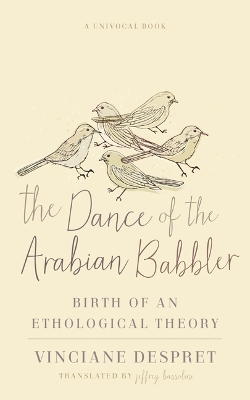Univocal
2 total works
Virginia Woolf, to whom university admittance had been forbidden, watched the universities open their doors. Though she was happy that her sisters could study in university libraries, she cautioned women against joining the procession of educated men and being co-opted into protecting a "civilization" with values alien to women. Now, as Woolf's disloyal (unfaithful) daughters, who have professional positions in Belgian universities, Isabelle Stengers and Vinciane Despret, along with a collective of women scholars in Belgium and France, question their academic careers and reexamine the place of women and their role in thinking, both inside and outside the university. They urge women to heed Woolf's cry-Think We Must-and to always make a fuss about injustice, cruelty, and arrogance.
A groundbreaking reflection on the process by which one arrives at an ethological theory
How do humans study the complex worlds of animals without imposing their own societal and scientific gaze upon them? The biologist Amotz Zahavi stakes the controversial claim that Arabian babblers are said to raise themselves up each day to dance and tend to one another in the early morning sun. Such a claim will provoke the interest and intellectual curiosity of a young philosopher and psychologist recognizing that the best way for her to observe the practices of scientists at work is to join them on their terrain. Embedding herself in the field alongside ethologists in the Negev desert, Vinciane Despret deftly depicts and reflects on the process by which scientists construct their theories within the milieu of the animals they study. Along the way, and not without humor, Despret analyzes a variety of theories posited by many well-known thinkers, including Zahavi, who devoted his life to the interpretation, companionship, and conservation of the Arabian babbler bird, and naturalists such as Charles Darwin and Pierre Kropotkin.

